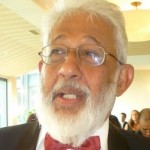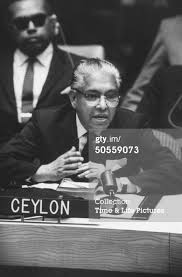China’s Ethnic Minorities: Wonder Whether Gota And Basil Went To Night School In Beijing?
Marching with the Han army in 100BC to conquer ethnic lands

By Kumar David -
Identity, a hard to understand mystery: Status quo of China’s ethnic minorities

 China has been successful in smoothing over potential conflicts with all its 55 ethnic minorities but two – Tibetans and Uighurs. Interestingly these are two large, but not the largest, but they differ from the nation’s 92% Han Chinese in religion, race and language. The 18 million Zhuang are the largest of the 55 officially recognised minorities, but account for only 1.3% of the population. They are the ancient indigenous people of the southern Guangxi Province, but well integrated. Hui (mainly in north-western Ningxia), Manchu of Manchuria and Uighurs of westernmost Xinjiang, numbering 10 million each, come next. Seven million Tibetans, the tenth biggest minority in China account for only half a per-cent of the nation’s population.
China has been successful in smoothing over potential conflicts with all its 55 ethnic minorities but two – Tibetans and Uighurs. Interestingly these are two large, but not the largest, but they differ from the nation’s 92% Han Chinese in religion, race and language. The 18 million Zhuang are the largest of the 55 officially recognised minorities, but account for only 1.3% of the population. They are the ancient indigenous people of the southern Guangxi Province, but well integrated. Hui (mainly in north-western Ningxia), Manchu of Manchuria and Uighurs of westernmost Xinjiang, numbering 10 million each, come next. Seven million Tibetans, the tenth biggest minority in China account for only half a per-cent of the nation’s population.
Apart from 23 provinces and four giant municipalities, China has five autonomous regions (AR) endowed with more powers than provinces to shelter ethnic identities. Interestingly only one, Tibet, is majority ethnic (90% Tibetan). Two, Ningxia and Guangxi, are one-third ethnic (Hui and Zhuang, respectively) but the two-thirds Han Chinese do not support AR status. In Xinjiang the ratio of Uighurs to Hans is about equal, while Mongols in the fifth AR, Inner Mongolia, are less than 20%. Anxious to forestall charges of unfairness to minorities the Communist Party pushed through AR status for these five; a reverse attitude to the Sinhala majority and government of Lanka.Read More
In Memory Of My Grandfather Sir Claude Corea

By Harindrini Corea - September 1, 2013
My paternal grandfather Sir George Claude Stanley Corea devoted his life in service to Sri Lanka. His inspiring career in diplomacy is remembered and respected. He was a humble and charismatic Christian gentleman who chose his words wisely and was a patient listener.
Sir Claude was born on the 29th of January 1894 in Chilaw, a seaside town situated on the North Western coast of Ceylon (Sri Lanka). An old boy of Wesley College, he entered politics as a representative from Chilaw and was elected to the State Council in 1931. He served as Minister of Labour, Industry and Commerce from 1936 until 1946. He was elected to the presidency of the Ceylon National Congress in 1932, 1939 and 1941. During the Second World War, Sir Claude Corea insisted that the Ceylon National Congress should not be lobbying for “mere constitutional reforms”, but should seek transfer of sovereignty to the people of Ceylon. After 1945, Sir Claude served as Chairman of the Board of Ministers Sub Committee with the mandate of resolving post-war problems. He was viewed as a potential first prime minister of Ceylon but chose a diplomatic career instead and accepted the post of Ceylonese Representative in the United Kingdom in 1946. He was appointed as the first Ceylonese Ambassador to the United States in 1948. He attended the 5th session of Food and Agriculture Organization of the United Nations in Washington DC from 21st November to 6th December 1949. On the 8th of September 1951, J. R Jayewardene (later President Jayewardene), Sir Claude Corea and R. G. Senanayake signed the Treaty of Peace with Japan, on behalf of Ceylon, in San Francisco.Read More


